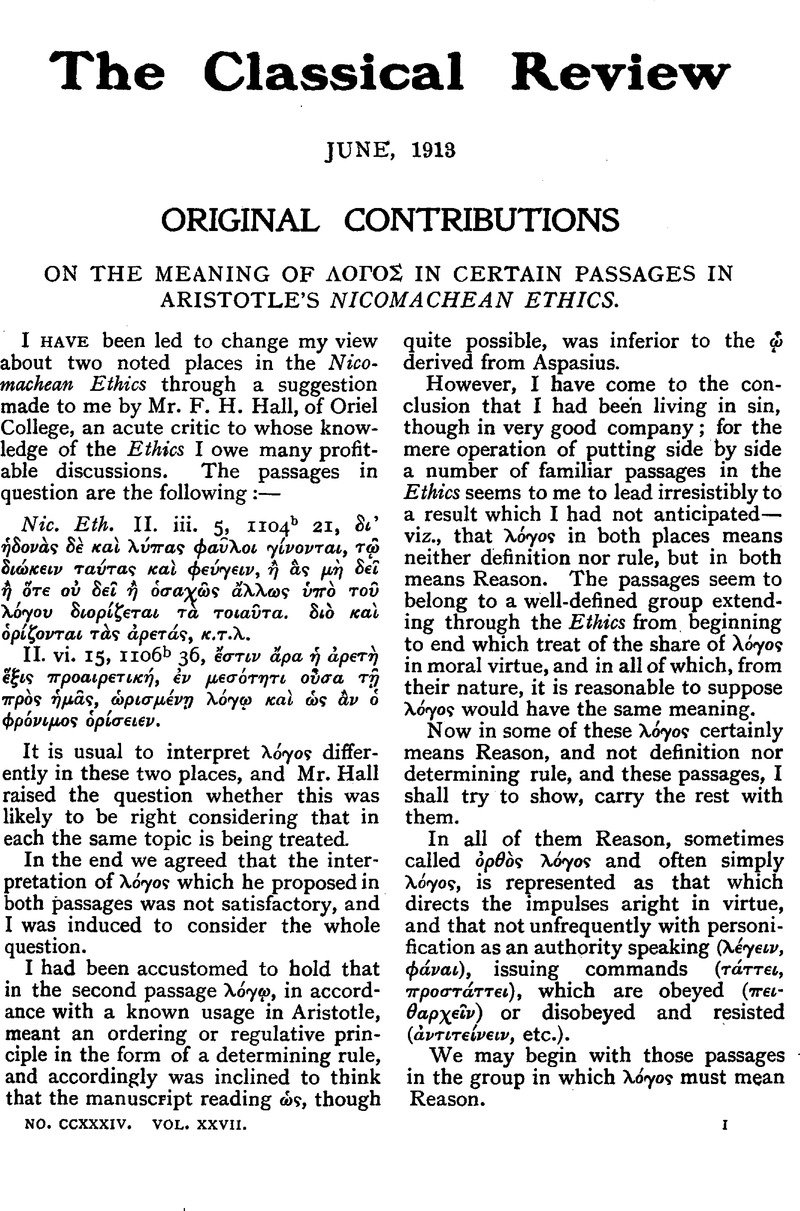Article contents
On the Meaning of ΛΟΓΟΣ in Certain Passages in Aristotle's Nicomachean Ethics
Published online by Cambridge University Press: 27 October 2009
Abstract

- Type
- Original Contributions
- Information
- Copyright
- Copyright © The Classical Association 1913
References
page 114 note 1 In this place, however, and some others (see the conclusion of this article) λ⋯γος may rather mean reasoning. But, as opposed to ‘definition,’ the translation is still ‘Reason.’ ‘Reason,’ like λ⋯γος, often stands for reasoning. In the familiar expression ‘to listen to reason,’ this is often the case. Cf. ‘When I am resolved, I always listen to reason, for then it can do no harm’ (Goldsmith's Good-natured Man). It is, of course, sometimes impossible to say which exactly is intended.
page 115 note 1 It must be observed that λ⋯γος sometimes—as, e.g., in VI. viii. 9, 1142a 26; xi. 4, 1143b 1, but by no means always—is restricted to discursive reason.
page 117 note 1 I find that Peters has ‘rational ordinance.’
- 3
- Cited by


